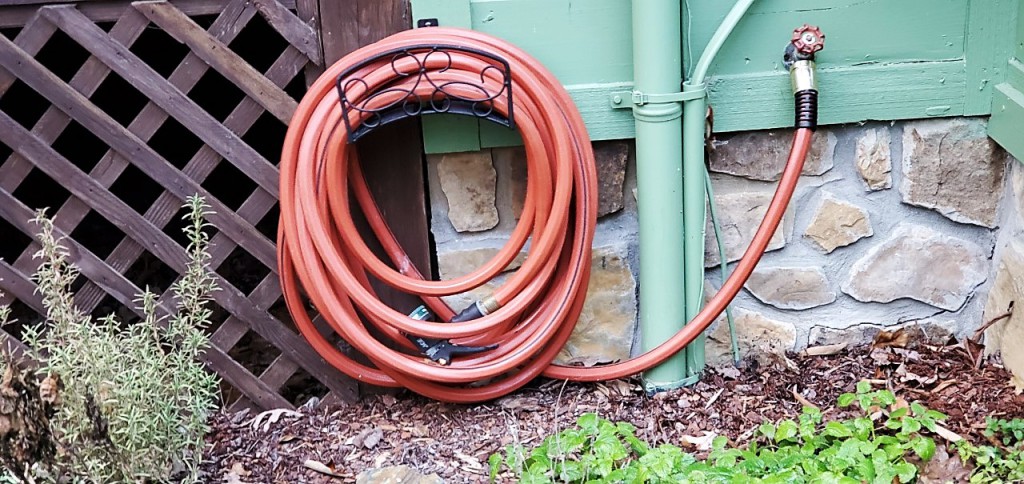Winter is setting in across North Georgia, and along with it comes some cold season tasks, including winterizing outdoor pipes and lawn sprinklers. If you haven’ already done this task, now would be a good time, as a few precautions now can save a lot of time and headaches once things warm up in the new year.
Temperatures have already dipped below freezing several times, and while this winter is just now getting started, there may be many more extended periods of freezing weather ahead of us. This is an important thing to consider, as freezing temperatures can cause some troubles outdoors, particularly in hoses, pipes and sprinklers where water may have accumulated.
To winterize your outside water hoses, you can do two things. One would be to simply leave the hoses hanging outside disconnected from the faucets. If elect to leave your hoses undrained outside in the winter, don’t move them or touch them in freezing weather. You could be the one to break them, as frozen hoses are fragile. Another option would be to disconnect, drain and store your hoses someplace with a constant temperature, which can extend the life of hoses.

Sustained temperatures below freezing can also cause water in an exposed pipe to expand. If the water expands too much, then the pipe may burst. Since only the top few inches of the ground tends to freeze in most of Georgia, in-ground sprinkler pipes should be insulated enough to prevent freezing, as these pipes should be well below this level.
However, other irrigation components, like backflow prevention valves, are at ground level and could be in danger. If your home has exposed valves or pipes, then one thing you can do is tape them up or use a good old sack to wrap them. Home-improvement stores have many tapes, foams and gadgets to keep these pipes warm on cold, winter nights.
With home irrigation systems, you probably wouldn’t know you had any pipe damage until you turned it on for the first spring watering. When winterizing a home irrigation system, don’t forget about the sprinkler heads, as they can hold water and may rupture if they freeze. To prevent damage to the system, don’t forget to drain it. If you don’t drain it properly in the winter, your sprinkler could be a geyser when you turn it on next spring.
Arrangements should have been made in the installation process to have a way to drain those lines that would hold water through a buried valve in a pit. If you’ve bought a home with an installed irrigation system, find this drain valve. Some systems are equipped with automatic drain valves.
Additionally, private water users and residents with wells should inspect their main water pump. There is usually a quarter-inch pipe connected to the pressure switch. If it’s metal, it likely won’t freeze. But if it’s plastic, it might freeze and burst. This could cause the water pump to fail or continue to run and cause some major winter repairs.
Lastly, if you come to find that these precautions have failed you and a pipe ends up bursting, there’s still one thing to remember – know the location of your main water cutoff!
For more information on winterizing equipment, contact the County Extension office or register for the Fannin-Gilmer County Agriculture and Natural Resources Blog “A Fruitful Discussion” at: https://site.extension.uga.edu/fannin-gilmer/.